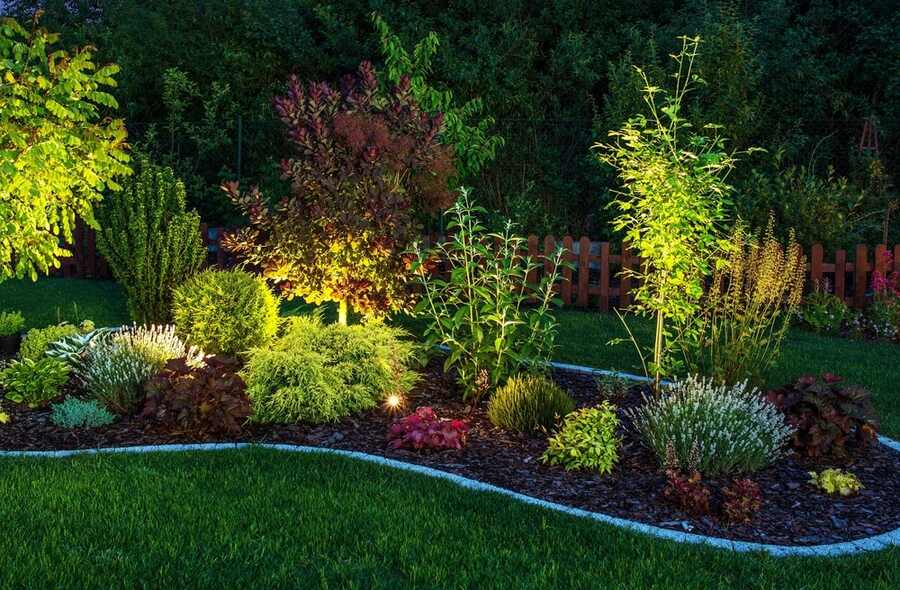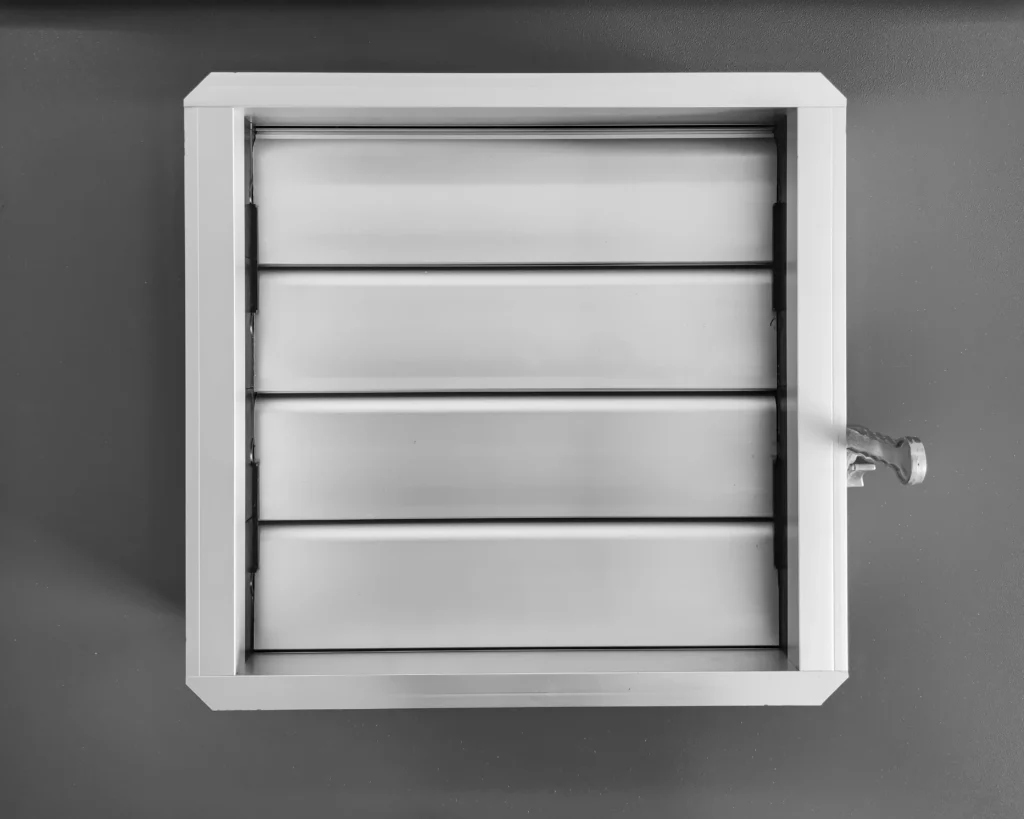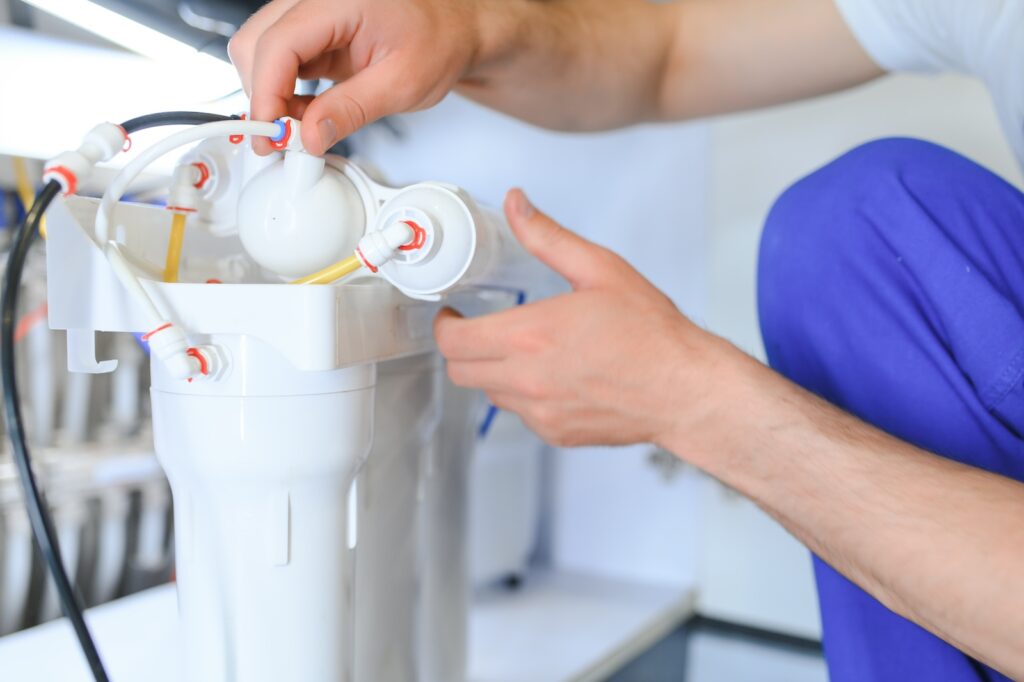
Blog
Can I have a Garden and a Geothermal Heat Pump Too?

With a geothermal heating and cooling system, you use the Earth’s natural heat to warm and cool your property. These types of systems offer many benefits, but some might be hesitant to install one because they believe it will cause damage to their yards and prevent them from keeping a thriving garden.
This blog dives into what geothermal heat pumps are, the benefits of using them, and dissects the question, “Can I have a garden and geothermal heat pump, too?”
What Is a Geothermal Heat Pump?
Geothermal heating and cooling systems tap into the constant temperature of the Earth just below the surface, which remains relatively consistent throughout the year. They are made up of three main components:
- A loop of pipes buried in the ground
- A heat pump
- A duct system
During the winter, the heat pump extracts heat from the ground through the loop of pipes and compresses it to a higher temperature. Then, the warm air is distributed throughout your home via the duct system. During the summer, the process is reversed, and the heat pump takes the heat from your home and transfers it back to the ground, effectively cooling your home.
Types of Geothermal Heat Pumps
The most common types of geothermal heat pumps are closed-loop systems shown. However, it is possible to use an open-loop system that circulates surface water or water from a well through the system and returns it to the ground through a discharge pipe.
Horizontal Loop
This type of system is popular for residential, especially for new construction where an adequate amount of land is available. It requires digging trenches that are at least four feet deep. A 2,000-sq.-ft. house requires 400 ft. of two-foot-wide trenches.
Vertical Loop
For larger commercial properties, vertical systems are often the more appropriate choice because the land area required for horizontal loops would be restrictive. It’s also best to use vertical loops where the soil is too shallow for trenching.
Pond/Lake
Another option for a closed-loop system is possible if there is an adequate body of water nearby. This system draws heat from water rather than from the soil. This can be one of the most cost-effective options available.
Choosing the right type of heat pump for you depends on a variety of factors, including:
- Climate
- Soil conditions
- Available land
- Heating and cooling needs
- Installation costs at the site
Working with a knowledgeable HVAC technician can help you determine the right system for you.
What Are the Benefits of a Geothermal Heat Pump?
There are several choices for homeowners when it comes to heating and cooling their homes, and geothermal heat pumps offer some unique benefits:
- Low Operation Cost: Geothermal heat pumps use 25 to 50 percent less electricity than conventional heating or cooling systems, according to the U.S. Department of Energy. Geothermal systems can heat and cool a 2,000-square-foot home for as little as $1 per day
- Environmentally-Friendly: These systems run on clean, renewable energy with no onsite combustion. They can reduce energy consumption and corresponding emissions by up to 44% compared to air-source heat pumps.
- Design Flexibility: You can use geothermal heating and cooling systems in new constructions as well as existing properties.
- Low Operation Noise: With no outdoor compressor or fan, you will not be bothered by a noisy machine.
- Long System Lifespan: The indoor components of a geothermal heating and cooling system typically last about 25 years, and you can expect that ground loop to last more than 50 years. This is significantly longer than the 15 years or less associated with a furnace or conventional AC unit.
Can I Have a Garden and a Geothermal Heat Pump?
Many homeowners love the opportunity to grow and maintain their own garden. Whether it’s a passion project or a more serious endeavor, everyone should have the chance to use their lawn to grow food and herbs if they want to.
Even so, wanting a garden shouldn’t prevent anyone from also experiencing the benefits of geothermal heat pumps. Many homeowners often raise concerns about what will happen to their yards, but it’s a misconception that a garden and a ground source heat pump can’t exist side by side.
However, it does require some planning. Depending on the type of loop you install, you will have to dig up a portion of your yard. Whoever installs the geothermal heat pump should work with you to select a path that will cause the least disruption to your garden.
What Can I Plant After Installing a Geothermal Heat Pump?
As you plan your landscaping and garden after the ground heat pump is installed, you have a few options to consider:
- Grass is often the easiest thing to plant. Whether you lay down sod, or simply reseed the area, the loop underneath will not affect the growth of the lawn. Once the grass comes in, you can mow this area just as you would any other part of your lawn.
- Wildflowers are a more decorative option to plant. The climate in Indianapolis gives you a wide range of choices. With some blooming in early spring and other varieties appearing late in the summer or even early fall, you will have color in your garden almost half the year.
- Smaller ornamental grasses or non-woody perennials are another smart choice because of their shallow root systems, which will not interfere with the functioning of your geothermal loop.
Remember, you’ll want to take into consideration a plant’s ability to handle slight temperature changes before planting it. When a geothermal heat pump is working correctly, it uses the water at the end of the loop to heat or cool the refrigerant going through its lines. As the refrigerant moves through the loop, you may see slight changes in the soil temperature. Plants that will do well are those that adjust to a range of temperatures easily.
While small shrubs are fine, it would be best to avoid trees directly on top of or close to the loop. Trees send out roots to look for water, which is why you have probably seen tree roots disrupting a sidewalk or creating hills and ridges in the yard.
Professional Geothermal Heat Pump Services in Indianapolis and the Surrounding Area
At the end of the day, never let a desire for a beautifully landscaped yard and garden stand in the way of installing a geothermal heating and cooling system at your house. Contact Chapman Heating, Air Conditioning & Plumbing for all your geothermal heating and cooling inquiries and needs today.










